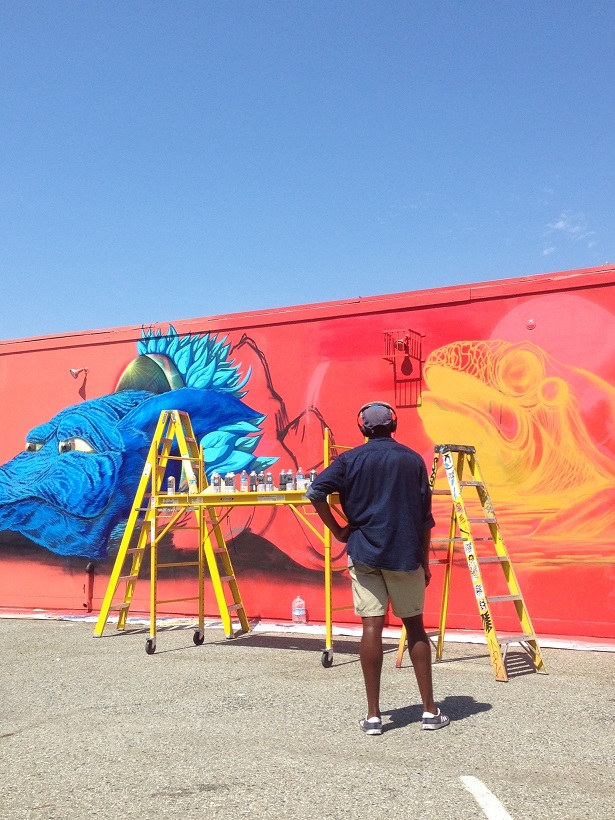Nichi Bei Bussan: 1902 to Present Day
“When the earthquake struck around 5 a.m., Shojiro was living next to a tall brick firehouse. The firehouse collapsed away from him and crushed the other house, killing everyone inside. If it had collapsed toward him, he would have been killed and there would be no history of Nichi Bei Bussan or the Tatsuno family thereafter. We can be very thankful...for now we are all living on borrowed time.”
nichi bei bussan in san francisco
SHOJIRO TATSUNO
During the 1920's Nichi Bei Bussan moved to the corner of Post and Buchanan in San Francisco. During that time many "picture brides" were arriving from Japan. Oftentimes coming to Nichi Bei Bussan straight from the ships wearing traditional kimono and obi, they would leave wearing American clothes, including corsets, high-button shoes, and large hats trimmed with ostrich feathers.
1932-The Great Depression. As with other stores, Nichi Bei Bussan had a very hard time and struggled to stay open. Eventually, the Depression ended and sales began to rise. The 1939-1940 San Francisco World's Fair really brought the sales back and helped Nichi Bei Bussan climb out of the Post-Depression era.
December 7th, 1941 was a huge turning point for Nichi Bei Bussan. At the time, it was not known what an immense impact the surprise Bombing of Pearl Harbor would have on America's West Coast Japanese-Americans but, fears and rumors were circulating. Talk about Internment Camps and an evacuation of Japanese-Americans from the West Coast prompted Nichi Bei Bussan to hold an "Evacuation Sale". This sale started around the beginning of March, 1942. A photograph taken of Dave and his son Sheldon hanging up an "Evacuation Sale" sign is now on display in the Smithsonian Institute's Museum of American History (Japanese-American section). The Japanese-American internment forced Nichi Bei Bussan to cut its prices and sell almost everything the store owned. All of the store fixtures and merchandise that didn't sell were boxed up and moved to a government warehouse with the evacuee #22381. On April 7th, 1942 Nichi Bei Bussan closed its doors.
photo of shojiro tatsuno taken around 1942 at the san francisco nichi bei bussan by dorothea lange taylor, noted photographer.
nichi bei bussan's location after world war II.
From May 1942 until May 1945 the Tatsuno's and thousands of other San Francisco Bay Area Japanese-Americans were forced to live behind barbed wire and armed guards at the Topaz War Relocation Authority Center (internment camp) in Topaz, Utah. During their "internment", Dave used his 8mm movie camera to take forbidden home movies of life inside the camp. His film, "Topaz 1945" has been used in numerous television documentaries and was inducted into the 1996 Library of Congress' film registry with 24 other movies selected from a field of 1,000 nominees. Other inductees included were "The Deer Hunter", "The Jazz Singer", "The Outlaw Josey Wales", and "M*A*S*H". It became only the second home movie ever selected, the first being the famous John F. Kennedy assassination film by Abraham Zapruder.
san jose location, july 1958
July 15th, 1946. With the war and internment camps behind them, Nichi Bei Bussan re-opened its doors on Buchanan St. in San Francisco. Shojiro had decided to retire and let Dave take over. In 1947, Masateru "Tut" Tatsuno (Shojiro's younger son) had returned from service in the U.S. Army. Dave saw an opportunity and decided to open a second store in San Jose, CA. He would run the new store; "Tut" would run the San Francisco store. In 1948 the San Jose branch of the newly-renamed "N.B. Department Stores" opened its doors in Japantown in the "Valley of Heart's Delight", now known as "Silicon Valley".
In 1973 the San Jose Store was remodeled to meet the competition from the new "shopping centers" that were opening in the Bay Area. Returning to its roots and its original name, the stores evolved into Japanese-goods stores. Instead of carrying merchandise that people could buy in the "Mall", Nichi Bei Bussan concentrated on traditional Japanese merchandise which makes up the heart and soul of the Nichi Bei Bussan of today.
After 95 years of operation, the decision was made to close the popular San Francisco store with the passing of Masateru Tatsuno in 1997. The San Jose store continues on with the same pride and strong tradition that made Nichi Bei Bussan what it is today. With customer requests and a not to our long and ever-evolving history, in the 90's we began accepting new and vintage consignments from individuals, families, and community non-profits.
On July 11th 1998, Nichi Bei Bussan (Silicon Valley) marked its 50th anniversary, followed by an in-store "Arigato" (thank you) appreciation sale and a reunion of NB staff. Thanks to all of those who attended the sale and reunion. With your patronage and friendship, Nichi Bei Bussan looks forward to continuing into the next century and beyond.











